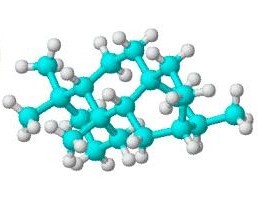Generic Drugs- Why is it important?
 A generic drug is equivalent to the brand name drug. After a brand name drug is developed after considerable amount of research and after the patent expires, generic drugs can be manufactured and sold to customers at very cheap rates. According to the US FDA, “A generic drug is identical or bioequivalent to a brand name drug in dosage, form, safety, strength, root of administration and intended use.”
A generic drug is equivalent to the brand name drug. After a brand name drug is developed after considerable amount of research and after the patent expires, generic drugs can be manufactured and sold to customers at very cheap rates. According to the US FDA, “A generic drug is identical or bioequivalent to a brand name drug in dosage, form, safety, strength, root of administration and intended use.”
As we shall see, very often the cost difference is so much that even well to do people cannot afford a branded drug while the generic version can be afforded. Take the case of Novartis. It sells its anti cancer drug for treating chronic myeloid leukemia ‘Gleevec’ for Rs. 1.2 lakh per month. The generic version costs Rs. 8000/month. The drug is out of patent in India and thus the generic drug can be sold.
Novartis is fighting a case for grant of patent on a new, crystalline salt form of the anti cancer drug ‘Immatinib Mesylate’ which it sold under the brand name Gleevec. A patent on this new form could provide another 20 year monopoly to Novartis. Such practices are called evergreening of patent.
In 2005, India amended its patent law to comply with the obligations under the Trade Related Intellectual Property Rights (TRIPS) agreement to provide process and product patent protection. Section 3 D of the patent law was thus introduced which aims to prevent ‘evergreening of patent.’ It is an important health safe guard that disallows patenting of new forms of known substances unless the new form exhibits a significant enhancement in efficacy.
In 2006, Indian Patent office ruled that the new salt form did not deserve a new patent since it did not meet the provisions of Section 3 D. Later, the Madras High court clarified that efficacy is therapeutic efficacy in healing a disease. Novartis is now asking the Supreme Court to interpret efficacy in such a way that enables it to seek a patent.
The judgement will be important for other reasons too. India is the largest producer of generic drugs and these drugs help patients not just in India but also in some of the poorest parts of Africa.
“About 80 per cent of anti-AIDS drugs and 92 per cent of drugs to treat children with AIDS across the developing world comes from the Indian generic manufacturers,” says Leena Menghaney of Medecins Sans Frontieres (translated from French as Doctors Without Borders). “India is literally the lifeline of patients in the developing world, especially in the poorest parts of Africa…If Sec. 3(d) is overturned, it means any meaningful effort to make these vital medicines available will be put in jeopardy.”
Image Credit – Wikipedia



The efficacy of generic drugs is the same as that of the brand name medicine. Only the price is much lower, which allows people from different social groups to get treatment.